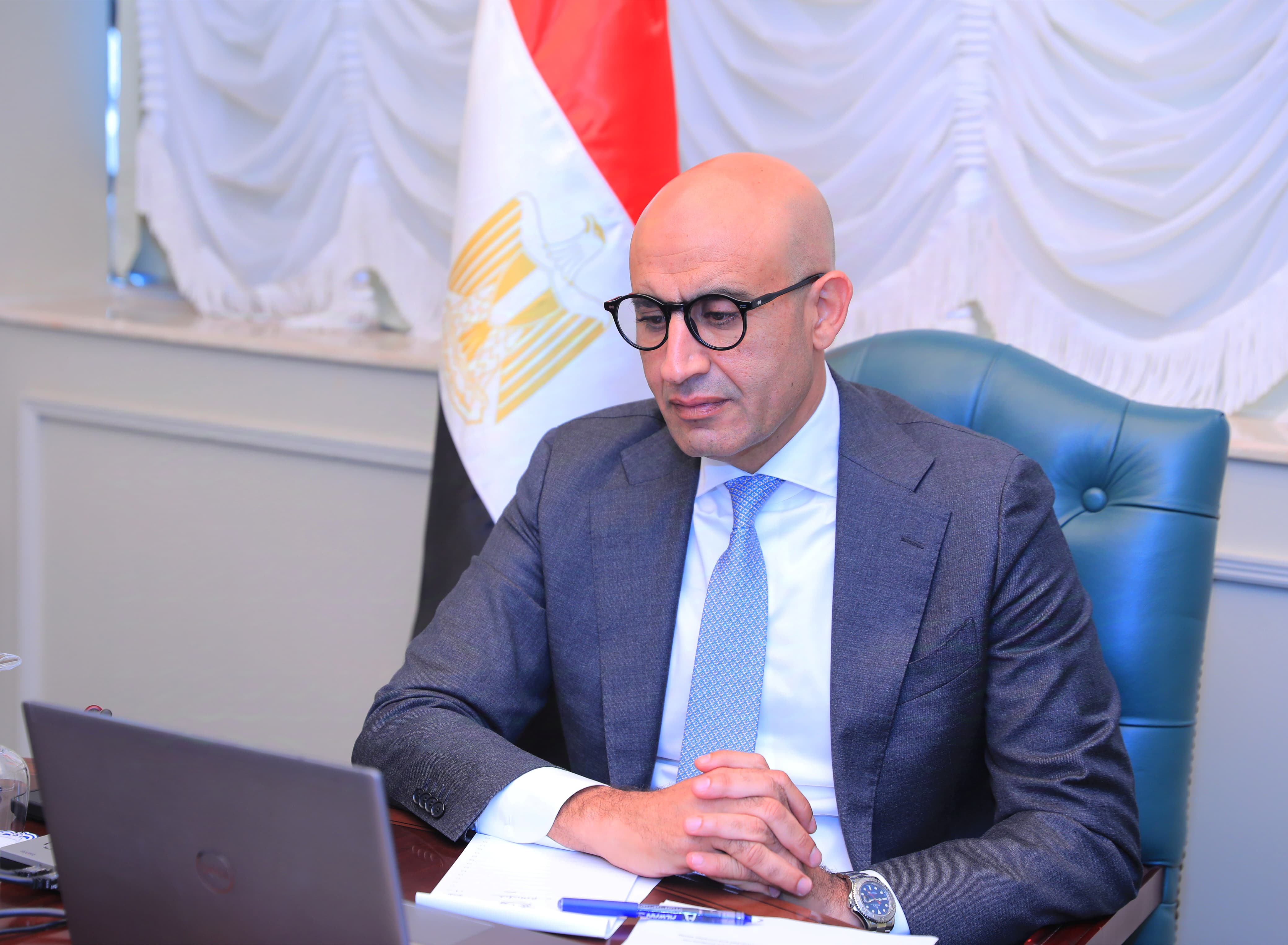Minister of Education Participates via Video Conference in the "Friends of Education" Forum

Mr. Mohamed Abdel Latif, Minister of Education and Technical Education, participated today via video conference in the "Friends of Education" Forum organized by the Global Partnership for Education (GPE) under the title "The Japanese-Style Education System and Future Prospects for the Ninth Tokyo International Conference on African Development: Learning from Egypt's Experience".
This came with the participation of members of the Global Partnership for Education (GPE), members of the Japanese Parliament, representatives of the Japan International Cooperation Agency (JICA), Dr. Hani Hilal, Secretary-General of the Egyptian Partnership for Education, and Professor Nevin Hamouda, Advisor to the Minister for Strategic Relations and Supervisor of Egyptian-Japanese Schools.
At the beginning of the meeting, Minister Mohamed Abdel Latif expressed his happiness to participate in the Friends of Education Forum, noting that his speech today is not only to discuss the joint successes between Egypt and Japan in the field of education, but also to talk about the transformative vision that guides efforts in developing education.
The Minister also expressed his sincere gratitude to the Government of Japan and the Japan International Cooperation Agency (JICA) for Their continued support for the advancement of the educational process in Egypt, stressing that their commitment contributed to strengthening the partnership between the two countries and had a significant impact on the development of education in Egypt. “Education is the cornerstone of national development and global progress,” the minister said, noting that Egypt is working to achieve its 2030 vision and realizes that reforming education is not an option but a necessity.
The minister explained that the ministry’s strategy adopts comprehensive educational models that prepare students not only for jobs but for life in an increasingly interconnected and complex world. For this reason, the ministry has adopted the Japanese-style education system, a model that goes beyond the boundaries of traditional knowledge-based learning and focuses on developing character, responsibility and values. He pointed out that this educational model is fully in line with Egypt’s aspirations to develop future leaders who are distinguished by innovation and ethical values. The essence of this approach is the concept of “Tokkatsu,” which embodies the spirit of comprehensive education.
The minister continued that through the establishment of Egyptian-Japanese schools, which now number 55 schools across the country, we have witnessed the power of this model in transforming education, as these schools have become a model of excellence, reshaping school management practices, enriching the relationship between students and teachers, and nurturing skilled students and preparing them for leadership.
The minister noted that the Egyptian-Japanese schools initiative is not just a milestone; Rather, it is a plan for the future, adding that we aim to expand this program to reach more than 100 Egyptian-Japanese schools; so that every child in Egypt, regardless of where they live, can benefit from this exceptional model.
The Minister stressed that the Ministry aspires to integrate the principles of "Tokkatsu" and Japanese-style education in every government school in Egypt, creating a unified system of excellence that serves all communities, explaining that achieving this vision will require strong and sustainable partnerships, and the cooperation between Egypt and Japan is evidence of what can be achieved when two countries unite under a common goal.
The Minister of Education called on partners from the government and the Japan International Cooperation Agency to further support the educational process in Egypt and advance this initiative to new horizons, saying: "By working together, we can create a sustainable model for quality education, not only for Egypt, but as a model for the entire African continent. Education is a bridge between cultures, a means of understanding, and a basis for innovation. By combining the strengths of the Japanese educational philosophy and Egypt's vision for development, we are working to build the foundations for a brighter and more prosperous future," noting the need to seize this opportunity to emphasize the shared commitment to quality education, character development, and global citizenship.
It is worth noting that the Friends of Education Forum aims to strengthen partnerships as the forum brings together governments, donors, international organizations, and the private sector to support national education plans, as well as share knowledge by exchanging experiences and best practices for developing education at the local and global levels.
The importance of this forum is due to its being an opportunity to focus on the challenges facing education, such as lack of funding, technological gaps, and inequality, by enhancing international cooperation to achieve a positive and sustainable impact.
The forum also aims to increase funding by encouraging more investments in education to support countries that need resources to develop their education systems, in addition to promoting comprehensive education by focusing on achieving the goals of education for all, and ensuring justice and inclusiveness in access to education.
